News and updates
Latest news and updates from the projectClimate risk to European fisheries and coastal communities
CERES researchers present climate risk analyses for 1) 105 ocean-dependent communities and 2) 380 fishing fleets in Europe. Their unique approach provides a perspective over the climate risks in this diverse and populous continent that is unprecedented in both its...
Assessing the state of the Barents Sea using indicators: how, when, and where?
Two end-to-end ecosystem models, NORWECOM.E2E and NoBa Atlantis, have been used to explore a selection of indicators from the Barents Sea Management plans (BSMP). The indicators included in the BSMP are a combination of simple (e.g. temperature, biomass, and...
Future Socio-political Scenarios for Aquatic Resources in Europe: An Operationalized Framework for Marine Fisheries Projections
Climate change is anticipated to have long-term and widespread direct consequences for the European marine ecosystems and subsequently for the European fishery sector. Additionally, many socio-economic and political factors linked to climate change scenarios will...
CERES Coordinator talks at EAS
CERES Scientific Coordinator Dr Myron peck recently gave a talk at the European Aquaculture Society on "The effects of climate change on the European aquaculture sector" This talked summarised what we have learned from recent EU programs about the effects of climate...
CERES research featured in EU Blue Economy Report 2020
Research conducted by the CERES project features in the EU’s annual Blue Economy Report for 2020.
CERES & ClimeFish Policy Session with EC & REA
On 11 June CERES and its partner project ClimeFish held a joint session with the European Commission and the Research Executive Agency.
CERES Synthesis report now available
The report identifies the risks, opportunities, and uncertainties of climate change for Europe’s fishery and aquaculture communities.
Linking individual physiological indicators to the productivity of fish populations: A case study of Atlantic herring
Physiological measures can help to identify environmental thresholds that constrain organismal-level performance. Relating these thresholds, in a cause-and-effect manner, to long-term changes in the vital rates (e.g. growth, survival, reproduction) of wild populations...
Changing fish distributions challenge the effective management of European fisheries
Changes in fish distribution are being observed across the globe. In Europe’s Common Fisheries Policy, the share of the catch of each fish stock is split among management areas using a fixed allocation key known as ‘Relative Stability’: in each management area, member...
Save the date: CERES final event
The CERES final meeting will take place in Haarlem, the Netherlands, on 21-23 January 2020
Alongside showing our final results, we will be having a stakeholder event to get the thoughts of industry.
If you are interested in attending, please contact the CERES project manager at anastasia[.]walter[@]uni-hamburg.de
CERES partners meet for synthesis writing
CERES partners met at Driebergen, the Netherlands to begin work on the final synthesis report. Parts of the report will be presented at the CERES final meeting in Haarlem in January.
Management Scenarios Under Climate Change – A Study of the Nordic and Barents Seas
The effects of increasing fishing pressure in combination with temperature increases in the Nordic and Barents Seas have been evaluated using an end-to-end model for the area forced by a downscaled RCP 4.5 climate scenario. The scenarios that have been applied have...
No Results Found
The page you requested could not be found. Try refining your search, or use the navigation above to locate the post.
Funding
![]() This project receives funding from the European Union’s Horizon 2020 research and innovation programme under grant agreement No 678193 (CERES, Climate Change and European Aquatic Resources). The content of this website does not reflect the official opinion of the European Union. Responsibility for the information and views expressed therein lies entirely with the author(s).
This project receives funding from the European Union’s Horizon 2020 research and innovation programme under grant agreement No 678193 (CERES, Climate Change and European Aquatic Resources). The content of this website does not reflect the official opinion of the European Union. Responsibility for the information and views expressed therein lies entirely with the author(s).
March 2016 - February 2020 I 5.6 Mio Euros .
Contact
CERES Office Universität Hamburg, Germany
Professor Dr. Myron Peck, scientific coordinator
Anastasia Walter, project manager
Phone +49 40 42 838 9891
Email contact@ceresproject.eu
Twitter @ceresproject_eu


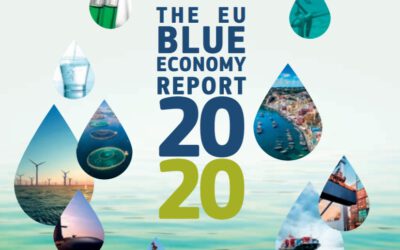
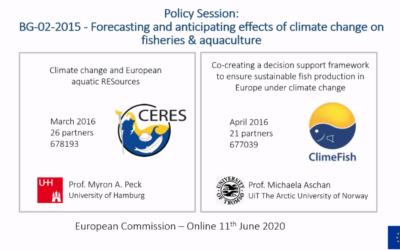
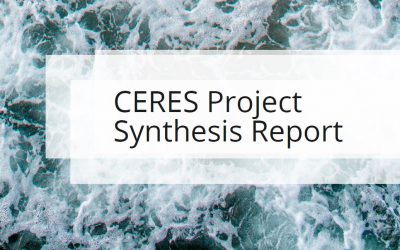
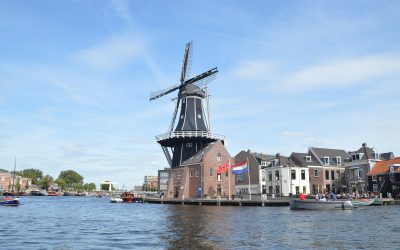
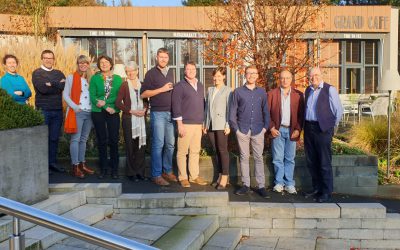
Comments